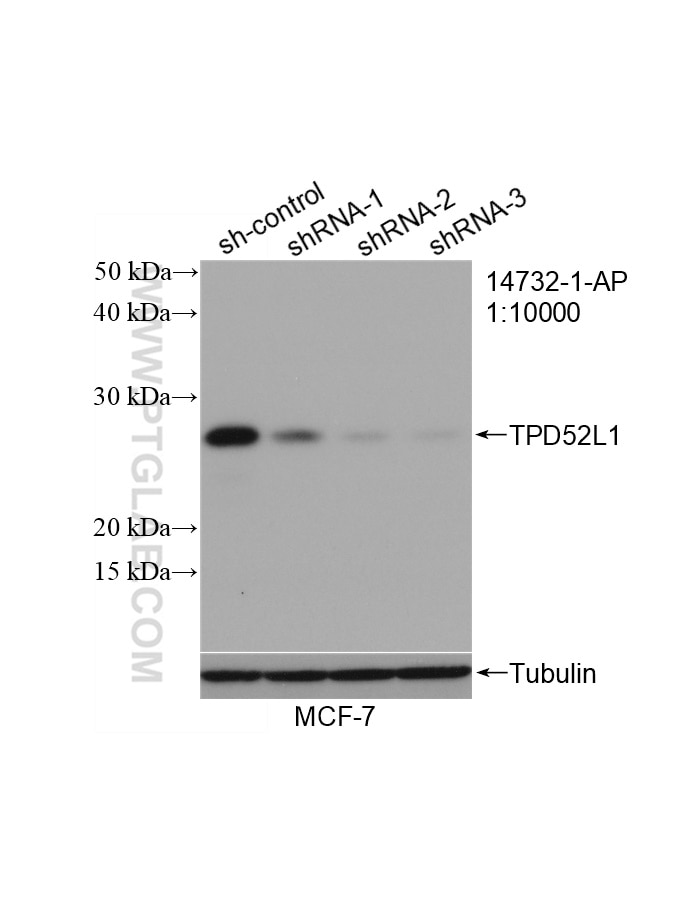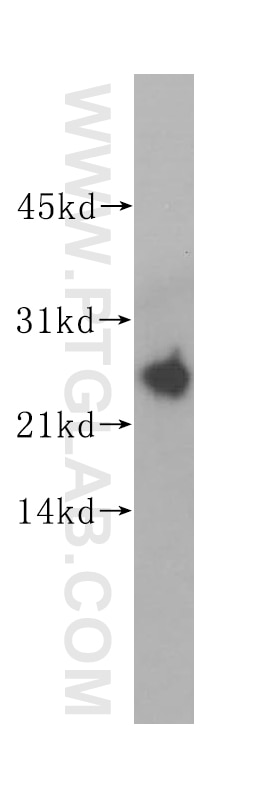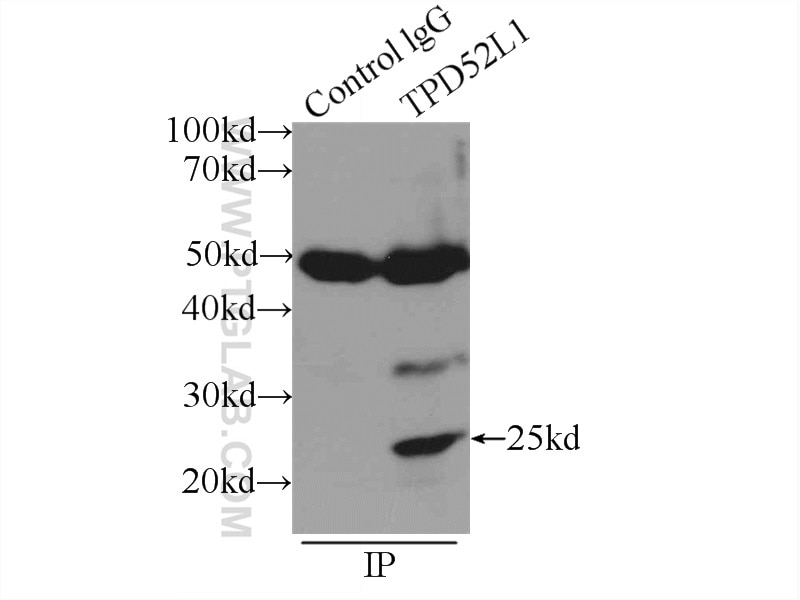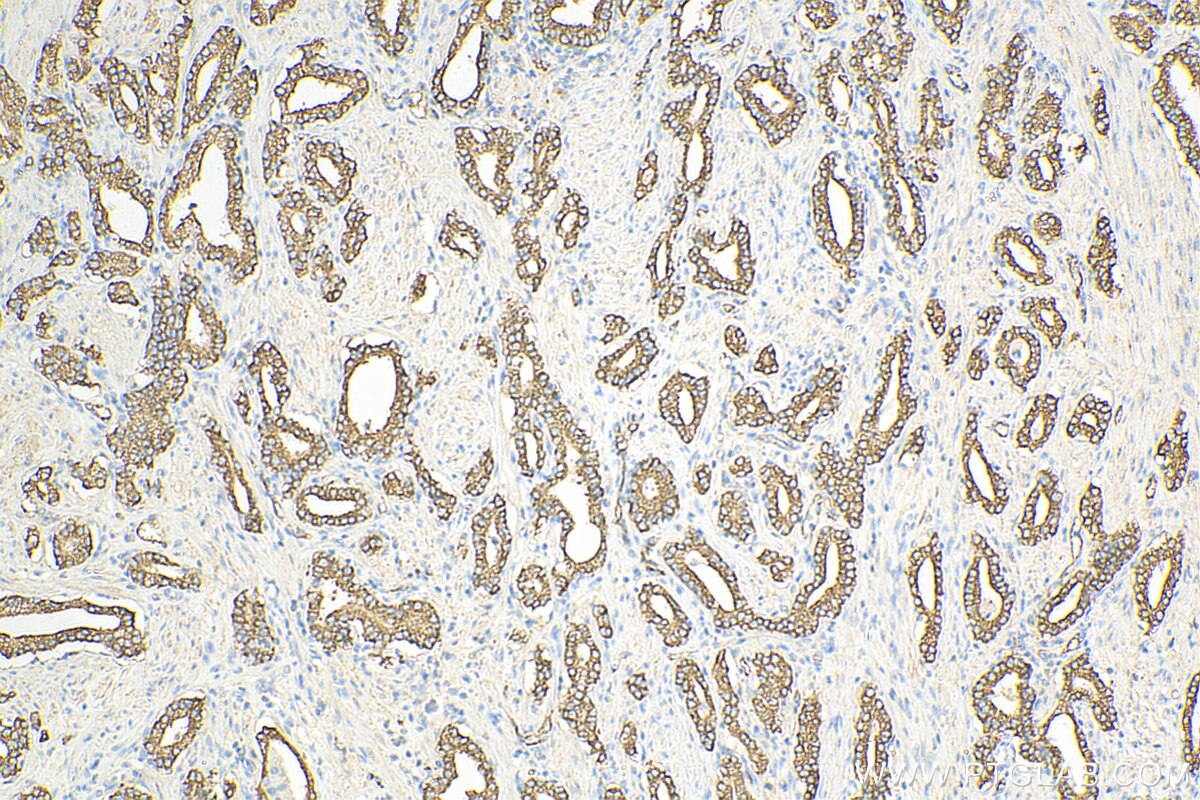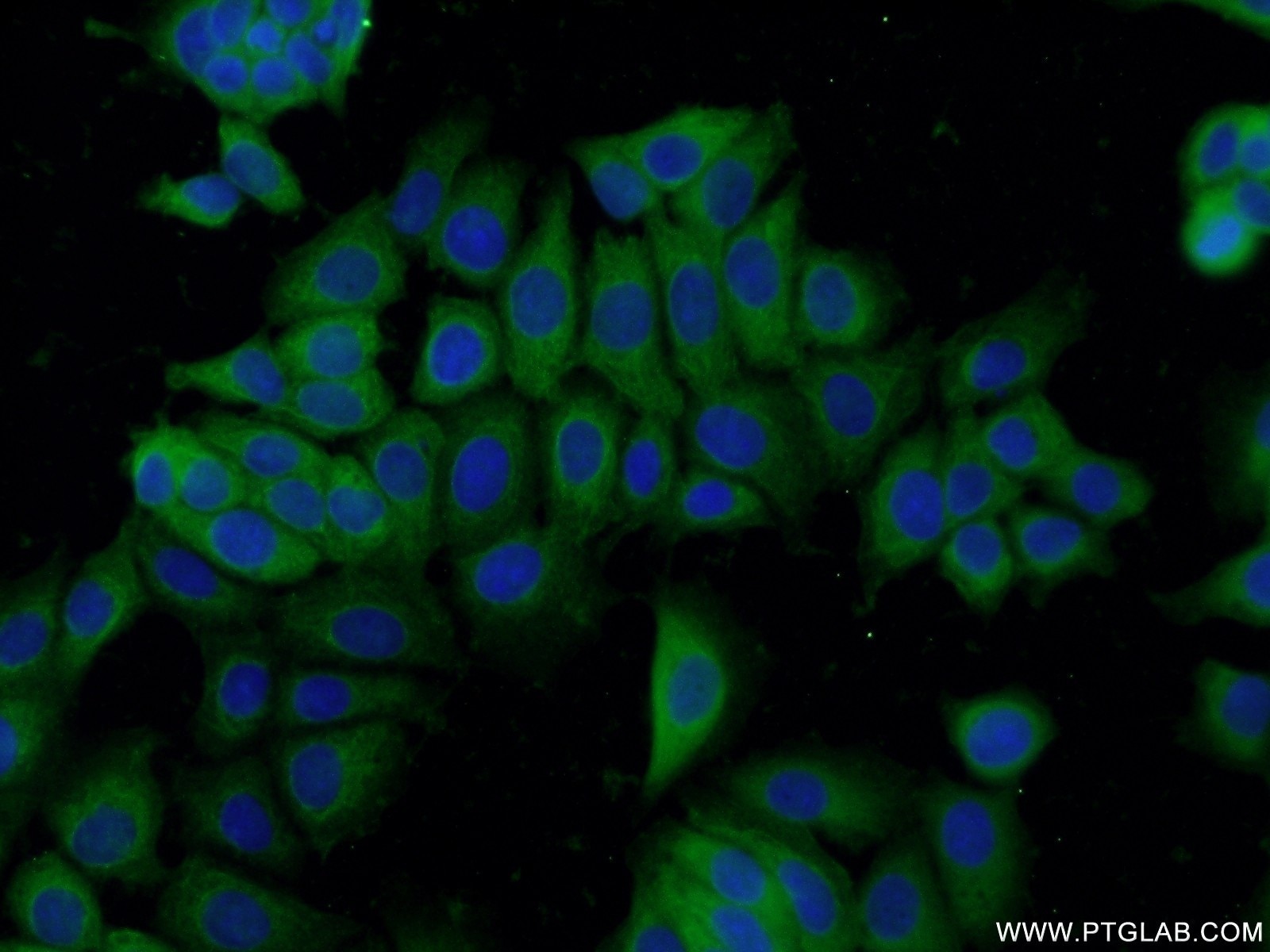- Phare
- Validé par KD/KO
Anticorps Polyclonal de lapin anti-hD53; TPD52L1
hD53; TPD52L1 Polyclonal Antibody for WB, IP, IF, IHC, ELISA
Hôte / Isotype
Lapin / IgG
Réactivité testée
Humain et plus (1)
Applications
WB, IHC, IF/ICC, IP, ELISA
Conjugaison
Non conjugué
N° de cat : 14732-1-AP
Synonymes
Galerie de données de validation
Applications testées
| Résultats positifs en WB | cellules MCF7, cellules MCF-7 |
| Résultats positifs en IP | cellules MCF-7 |
| Résultats positifs en IHC | tissu de cancer de la prostate humain, il est suggéré de démasquer l'antigène avec un tampon de TE buffer pH 9.0; (*) À défaut, 'le démasquage de l'antigène peut être 'effectué avec un tampon citrate pH 6,0. |
| Résultats positifs en IF/ICC | cellules MCF-7 |
Dilution recommandée
| Application | Dilution |
|---|---|
| Western Blot (WB) | WB : 1:500-1:1000 |
| Immunoprécipitation (IP) | IP : 0.5-4.0 ug for 1.0-3.0 mg of total protein lysate |
| Immunohistochimie (IHC) | IHC : 1:50-1:500 |
| Immunofluorescence (IF)/ICC | IF/ICC : 1:20-1:200 |
| It is recommended that this reagent should be titrated in each testing system to obtain optimal results. | |
| Sample-dependent, check data in validation data gallery | |
Applications publiées
| WB | See 3 publications below |
| IHC | See 2 publications below |
| IP | See 1 publications below |
Informations sur le produit
14732-1-AP cible hD53; TPD52L1 dans les applications de WB, IHC, IF/ICC, IP, ELISA et montre une réactivité avec des échantillons Humain
| Réactivité | Humain |
| Réactivité citée | Humain, souris |
| Hôte / Isotype | Lapin / IgG |
| Clonalité | Polyclonal |
| Type | Anticorps |
| Immunogène | hD53; TPD52L1 Protéine recombinante Ag6493 |
| Nom complet | tumor protein D52-like 1 |
| Masse moléculaire calculée | 22 kDa |
| Poids moléculaire observé | 25 kDa |
| Numéro d’acquisition GenBank | BC002375 |
| Symbole du gène | TPD52L1 |
| Identification du gène (NCBI) | 7164 |
| Conjugaison | Non conjugué |
| Forme | Liquide |
| Méthode de purification | Purification par affinité contre l'antigène |
| Tampon de stockage | PBS avec azoture de sodium à 0,02 % et glycérol à 50 % pH 7,3 |
| Conditions de stockage | Stocker à -20°C. Stable pendant un an après l'expédition. L'aliquotage n'est pas nécessaire pour le stockage à -20oC Les 20ul contiennent 0,1% de BSA. |
Informations générales
Tumor protein D52-like 1 (TPD52L1) gene, also known as hD53, encodes a member of the tumor protein D52 (TPD52) family. TPD52-like proteins are coiled-coil motif-bearing proteins first identified through their expression in human breast carcinoma, which have been proposed to represent signaling intermediates and regulators of vesicle trafficking. hD53 may form homo- or heterodimers with other TPD52 family members, and it is reported to be involved in cell proliferation and calcium signaling. Four variants resulted from alternative splicing have been predicated and this antibody is expected to recognize all the variants.
Protocole
| Product Specific Protocols | |
|---|---|
| WB protocol for hD53; TPD52L1 antibody 14732-1-AP | Download protocol |
| IHC protocol for hD53; TPD52L1 antibody 14732-1-AP | Download protocol |
| IF protocol for hD53; TPD52L1 antibody 14732-1-AP | Download protocol |
| IP protocol for hD53; TPD52L1 antibody 14732-1-AP | Download protocol |
| Standard Protocols | |
|---|---|
| Click here to view our Standard Protocols |
Publications
| Species | Application | Title |
|---|---|---|
Cell Biosci Tumor protein D52 is upregulated in oral squamous carcinoma cells under hypoxia in a hypoxia-inducible-factor-independent manner and is involved in cell death resistance. | ||
Front Oncol Transcriptomic Analyses of the Adenoma-Carcinoma Sequence Identify Hallmarks Associated With the Onset of Colorectal Cancer. | ||
Int J Oncol Opposite effects of tumor protein D (TPD) 52 and TPD54 on oral squamous cell carcinoma cells. | ||
Biochem J Tumor protein D52 expression is post-transcriptionally regulated by T-cell intercellular antigen (TIA) 1 and TIA-related protein via mRNA stability. | ||
Sci Data The Signaling Pathways Project, an integrated 'omics knowledgebase for mammalian cellular signaling pathways. |
